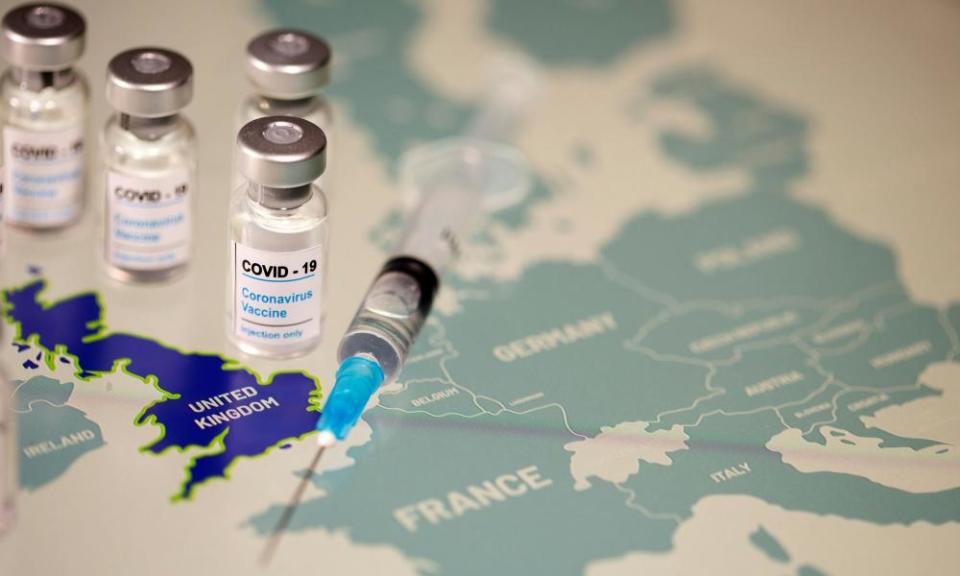The Guardian view on Covid-19 vaccine distribution: fairer is also wiser

As the pandemic took hold around the world, one image came to capture the wildly differing experiences of a common crisis: “We are in the same storm, but we are not all in the same boat.”
This is equally applicable to our escape from the storm. The speed with which vaccines have been developed is incredible; the Pfizer/BioNTech vaccine is due to be used in the UK within days. But reaching the billions who need them worldwide may be even more challenging. It will depend not only on the technical capacity to produce and deliver doses, but on the behaviour of better-off nations. In the 2009 swine flu pandemic, high-income countries bought up all vaccine stocks. The evidence suggests that this time, too, they are snatching up supplies at a rate which could leave poorer countries waiting for years.
The good news is that almost 190 nations have now signed up to a pooled purchasing scheme designed to ensure fairer distribution. Covax was founded by the World Health Organization, the Coalition for Epidemic Preparedness Innovations, and Gavi, the Vaccine Alliance, which has already saved millions of lives through its childhood immunisation schemes. It aims to deliver 2 billion doses by the end of 2021, allowing participating countries to immunise 20% of their populations, covering healthcare workers and the most vulnerable. Around half the countries are self-financing, while low- and middle-income countries will be supported.
The extraordinarily widespread buy-in is welcome, though the United States is a notable omission; there are hopes that the incoming Biden administration may change that. So is the news that the facility already has agreements to buy several vaccines. But while the $2bn of funding so far received will reserve initial doses, another $5bn will be needed for 2021.
Three other issues are critical: which vaccines Covax can access, when, and at what price. Covax has yet to sign a deal with Pfizer or Moderna, manufacturer of a second vaccine, though they are in talks. The Oxford University/AstraZeneca candidate, like others which should be easier to deliver because they do not require ultra-cold storage, appears to be some way further behind.
Even where agreements have been reached, it is unclear where Covax stands in the queue. Many richer countries have made all the right noises about supporting it, while striking deals with pharmaceutical companies which effectively cut the pool of doses that can be distributed through the scheme – though some have promised to share their supply. And some pharmaceuticals firms have said throughout that they can only develop a vaccine for profit, though AstraZeneca has said it will provide doses on a cost basis during the pandemic, for a maximum of $3 a shot; a fraction of the price touted for Pfizer’s and Moderna’s.
Ensuring better, fairer distribution of the vaccine is simply the right thing to do. But governments in wealthier countries must persuade their electorates of that. One obvious rationale is the risk that imported infections could lead to renewed outbreaks. Relying on travel restrictions is not enough: the global economy cannot recover while half the world is still struggling to cope with the virus. It is in no one’s interests if this scheme ends up at the back of the queue. Wealthier nations must find the cash to support Covax, refrain from hoovering up too much of the supply, and press pharmaceuticals firms to guarantee a decent price. According to McKinsey, governments have spent $10tn responding to the consequences of the vaccine. It is a false economy to shell out vast sums for their own country while telling the rest of the world to go hang.
The universality of the threat from Covid-19 makes vaccination uniquely challenging. With demand for doses far outstripping supply, the temptation for people to focus on their own immediate interests may seem overwhelming. Yet the early days of the pandemic saw an unusual sense of solidarity. This time, no nation can be confident that they have reached safety while others are still at sea.

 Yahoo Finance
Yahoo Finance 